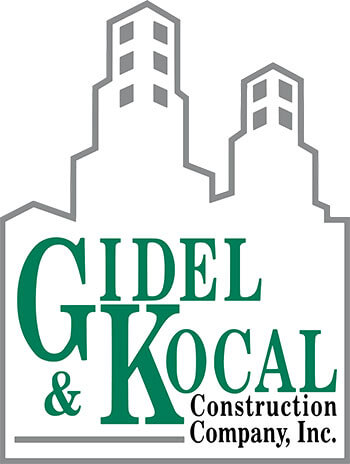
Construction planning services have undergone a revolutionary transformation through technology, creating unprecedented opportunities for efficiency and precision. Modern construction projects in the Bay Area are experiencing remarkable success through strategic implementation of digital planning tools that address traditional industry challenges proactively.
For innovative firms operating in the competitive Bay Area market, particularly those specializing in medical construction and design or large-scale commercial builds, technology-enhanced planning services create a substantial competitive advantage. Establishing a robust digital foundation now positions your projects for optimal performance from day one.
The strategic question for today’s construction professionals isn’t about whether to incorporate technology into planning processes, but rather how to leverage these powerful tools to maximize measurable impact. This article demonstrates how construction technology—from BIM to predictive analytics—fundamentally transforms how construction service companies plan, execute, and achieve exceptional results.
Let’s explore how today’s technologies are redefining construction planning services and how Gidel & Kocal Construction Company, one of the leading San Jose commercial general contractors, is staying ahead of the curve.
Overview of Construction Management Software for Construction Planning Services
Behind every successful modern build is a smart digital backbone, construction management software. These platforms are no longer optional for construction managers and professionals; they’re essential tools for navigating the increasingly intricate world of construction projects.
Construction management software supports everything from scheduling, planning, estimating, and budgeting to resource allocation, document control, and real-time communication. With complex projects growing, especially in sectors like healthcare facility construction and modern commercial building plans, the need for centralized and scalable solutions is more pressing than ever.
Some of the most powerful platforms in use today include:
- Building Information Modeling (BIM): A cornerstone of architecture, engineering, and construction workflows, BIM allows teams to collaborate on a shared digital model, enhancing coordination, reducing material waste, and spotting design conflicts early.
- Project management software: Tools like Procore, Buildertrend, and Autodesk Construction Cloud empower teams to monitor budgets, track progress, and manage construction stages from project initiation to closeout.
- 3D laser scanners and augmented reality (AR): These tools enable precise site visualization and planning, which is particularly useful in complex construction projects where accuracy is critical.
By investing in construction software, companies can ensure smoother execution, especially during the planning and early development stages. Many forward-looking Bay Area commercial general contractors consider these platforms foundational to their operations and their construction planning services.
Benefits of Digital Planning Tools
Digital planning tools are revolutionizing the construction industry. What used to be weeks of back-and-forth has become streamlined workflows that produce faster, more accurate results. For construction managers, adopting these technologies isn’t just about modernization; it’s about creating a real-world impact across every building phase. Here’s what the right tools bring to the table:
Enhanced Collaboration
Digital platforms like BIM and cloud-based dashboards help managers and construction professionals work from a single source of truth. This real-time sharing improves communication between engineering and construction personnel, architects, and contractors, reducing misunderstandings and minimizing rework.
Predictive Analytics and Risk Management in Construction Planning Services
By incorporating predictive analytics and data analytics in construction, teams can forecast risks, optimize resource allocation, and prevent delays before they happen. These capabilities are game-changers, especially in large-scale or complex construction projects.
Significant Cost Savings
Through better design visualization, fewer errors, and smarter procurement strategies, companies can drastically reduce material waste and transportation and storage costs. Virtual and augmented reality allow stakeholders to “walk through” a building before breaking ground, helping avoid costly surprises.
Faster and More Accurate Decision Making
With access to real-time data and AI-assisted tools, construction managers can make informed decisions on the fly. They can adjust timelines, reallocate crews, or reorder materials to prevent costly standstills.
Sustainability and Efficiency
From modular construction methods to automated construction equipment and robotics, today’s tools support greener builds and tighter schedules. These efficiencies translate into reduced emissions and faster time-to-occupancy, key advantages for clients and contractors alike.
Whether you’re managing a medical facility construction project or a retail space with tight deadlines, leveraging digital tools ensures smoother workflows, fewer setbacks, and better outcomes.
How Technology Improves Project Outcomes
The construction process is full of moving parts, but technology helps bring order to the chaos. From groundbreaking to final inspection, emerging construction technology trends are reshaping how projects are delivered on time, on budget, and with higher precision.
Here’s how technology directly improves project outcomes:
Better Project Visibility and Monitoring
Modern tools allow construction managers to monitor progress across multiple sites using remote site inspections and IoT-enabled dashboards. These systems increase transparency, speed up approvals, and support faster responses to on-site issues.
Reduced Errors and Rework
Technologies like 3D printing and virtual reality allow for early-stage design simulations that reveal potential construction conflicts before they become costly field problems. This is especially useful in complex projects like medical construction and design, where every inch counts.
Increased Productivity
Automation is no longer futuristic; it’s here. Construction robotics and automation, including drones, robotic arms, and autonomous machinery, are helping teams work more efficiently, reduce manual labor, and shorten schedules without compromising quality.
Improved Safety Standards
Wearable tech and AI-driven monitoring help identify risks in real-time, alerting workers to potential hazards and enabling construction personnel for project management to manage site safety proactively. This is a significant win in high-risk sectors like healthcare facility construction and heavy commercial builds.
Data-Driven Decision Making
Thanks to advances in machine learning and data collection, project teams now rely on real-time insights, not gut instincts. Analytics in construction technology enable smarter resource allocation, optimized labor deployment, and more accurate forecasting.
These innovations are more than just buzzwords, they’re measurable improvements. With the global construction sector expected to grow to $15.5 trillion, companies embracing technologies in the construction process are setting the standard for the future.
Gidel & Kocal’s Use of Cutting-Edge Technology
For Gidel & Kocal, technology isn’t an optional upgrade; it’s baked into the core of every project. Their commitment to precision, transparency, and value is powered by advanced tools that elevate every construction phase, from initial planning to the final walkthrough.
Technology at the Heart of Pre-Construction Services
Gidel & Kocal use innovative tools to deliver sharper budgets, better timelines, and tighter coordination as part of their pre-construction services. Digital construction planning platforms allow our team to conduct in-depth constructability reviews and value engineering construction assessments early, helping clients avoid rework and unnecessary costs later.
Tools like Building Information Modeling (BIM) are integral here. They offer interactive 3D visualization that improves stakeholder alignment and reduces material waste. Combined with data analytics, Gidel & Kocal fine-tunes every variable, budget, labor, scheduling, to give each client a solid foundation for success.
On-Site Efficiency Through Technology
Gidel & Kocal also bring innovation to your job site. Our team integrates automated construction equipment, real-time project dashboards, and modern resource allocation tools to keep builds on track. These systems support construction managers in making rapid, informed decisions, especially during the most unpredictable build stages.
By prioritizing digital tools that enhance efficiency, Gidel & Kocal minimizes downtime and maximizes control, key factors in the success of complex construction projects like healthcare facilities, life science labs, and retail spaces.
Collaborative Project Execution
Throughout construction, our technology-driven workflows ensure construction professionals stay aligned, vendors remain informed, and clients get clear updates at every step. From scheduling planning and estimating to field coordination, the emphasis is on clear communication backed by digital precision.
This approach is why Gidel & Kocal remains one of the most trusted commercial contractors in the Bay Area; we don’t just build with excellence; we plan with intelligence.
Conclusion
Technology is no longer a competitive edge; it’s a baseline expectation. Clients expect faster timelines, tighter budgets, and zero surprises. Construction firms must evolve beyond manual spreadsheets and gut-feel scheduling to meet those standards.
The next step is to evaluate how your current planning approach stacks up. Are you equipping your teams with the tools to spot risks early, adapt in real-time, and deliver the kind of transparency clients now demand?
If not, consider this your prompt. Whether you’re overseeing a complex healthcare build or breaking ground on a new retail construction project, integrating smart planning tools now will save you far more than time; it could save your reputation.
We are here to help you plan with precision, build with confidence, and stay ahead of schedule. Let’s talk about how our technology-first approach can support your next project, contact us today to get started.
